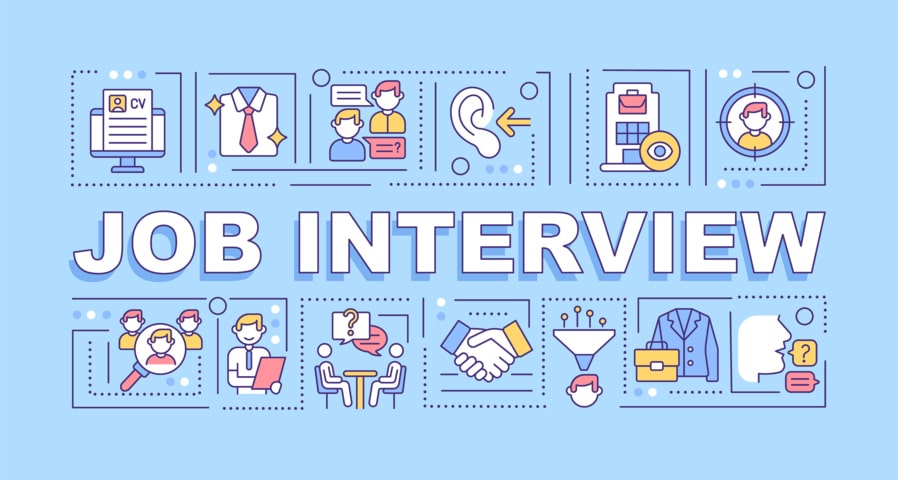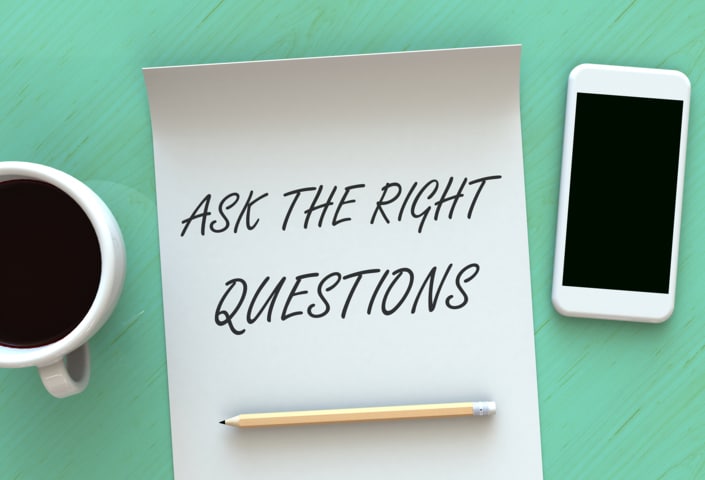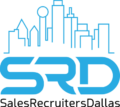Job interviews can be nerve-wracking. You never know what to expect. Will it be a one-on-one interview? A panel interview? A group interview? In this blog post, we will discuss the different types of interviews you can expect during a job interview. We will also provide tips on how to prepare for each type of interview. Let’s get started!

Phone Interview
Did you know that 118 people apply for a single job, on average, which is why a phone interview is typically used as a preliminary interview that is typically used to screen candidates? During a phone interview, the interviewer will ask you questions about your experience and qualifications. They will also ask you about your availability and salary requirements. Phone interviews are usually conducted by HR professionals or recruiters. During this type of interview, you’ll want to quickly establish that you’re a qualified candidate. Be sure to have your resume and the job posting in front of you so you can refer to them as needed.
Your Experience And Why You’re A Good Fit
One of the most important things to do during a phone interview is to establish why you’re a good fit for the job. The interviewer wants to know that you have the skills and experience necessary to do the job. Be sure to highlight your relevant experience and qualifications. If you don’t have much work experience, be sure to emphasize your motivation and willingness to learn.
Demonstrate How You’ll Fit In With The Culture
Recruiters are often looking for candidates who will fit in with the company’s culture. During a phone interview, be sure to demonstrate how you’ll fit in with the company’s culture. Talk about your values and how they align with the company’s values. Also, be sure to discuss your interest in the company and its mission.
Show Your Interest In The Position
If you’re interested in the position, be sure to let the interviewer know. Express your excitement about the opportunity and why you think it’s a good fit for you. Also, be sure to ask questions about the role and the company. This will show that you’re truly interested in the opportunity.

Ask Questions
Last but not least, be sure to ask questions during the phone interview. This will show that you’re engaged and interested in the role. It’s also a great opportunity to learn more about the company and the position.
Face To Face Interviews
After a successful phone interview, you’ll likely be invited to a face-to-face interview. This is your chance to really sell yourself and demonstrate why you’re the best candidate for the job. During a face-to-face interview, you can expect to be asked questions about your experience, qualifications, and availability. You’ll also be asked behavioral questions. Be sure to prepare for these types of questions in advance. Examples of common questions may include:
Behavioral Questions
Most one-on-one interviews include behavioral questions such as:
- What are some of the challenges you’ve faced in your previous roles?
- How did you handle those challenges?
- What are some of the projects you’ve worked on?
- Tell me about a time when you had to go above and beyond to get the job done.
Remember, the key to behavioral questions is to give specific examples of your past experience. The interviewer wants to know how you’ve handled certain situations in the past and what the outcome was.
Questions about your availability and salary requirements
The interviewer will also likely ask you about your availability and salary requirements. Be prepared to discuss these topics in detail. If you have any questions about the position, this is also a good time to ask them.
Strengths And Weaknesses
When asked about your strengths and weaknesses, be honest. However, try to focus on your strengths more than your weaknesses. For example, you could say that you’re a perfectionist and that you sometimes work too hard. This is a great opportunity to talk about how you’re working on improving your weakness.
Questions about your experience
The interviewer will want to know about your relevant work experience. Be sure to discuss the skills and experience you have that are relevant to the job. Also, be sure to talk about any accomplishments you’ve achieved in your previous roles.

Group Interviews
Group interviews are becoming more and more common. During a group interview, you’ll be interviewed by a panel of interviewers. This type of interview can be intimidating, but it’s important to remember that the interviewers are just looking to see how you interact with others. They want to see if you’re a team player. Be sure to demonstrate your teamwork skills during a group interview. Some tips for acing a group interview include:
- Preparing Your Elevator Speech: Knowing how to introduce yourself is key in a group interview. You’ll likely have to give your elevator speech at some point during the interview. Be sure to practice your introduction in advance so that you’re prepared.
- Introduce Yourself To Everyone: One of the first things you should do in a group interview is to introduce yourself to everyone. This will show that you’re friendly and outgoing. It’s also a great opportunity to get to know your fellow candidates.
- Be An Active Listener: In order to be an active listener, you need to pay attention to what others are saying. This includes making eye contact and not interrupting. Active listening will show that you’re engaged in the conversation.
- Ask Questions: Asking questions is a great way to demonstrate your interest in the role. It’s also a great opportunity to learn more about the company and the position.
- Be Confident: The key to being confident is to believe in yourself. Remember, you were chosen to be in the group interview for a reason. You have just as much of a chance as anyone else to get the job.
Working Interview
A working interview is a type of interview where you’re asked to complete a task or project. This is usually done in order to assess your skills and experience. Working interviews are common in creative fields such as design and writing. They’re also becoming more common in other fields as well. If you’re asked to do a working interview, be sure to ask the interviewer for clarification on what is expected of you. It’s also important to give yourself enough time to complete the task. Rushing will only result in a subpar project.
The key to acing any interview is preparation. Be sure to research the company and the position before your interview. This will help you answer questions more confidently. Also, be sure to practice your answers to common interview questions. The more prepared you are, the more likely you are to succeed.
Remember that you should not be afraid to ask questions. This is your opportunity to learn more about the company and the position. Asking questions will also show that you’re interested in the role. Finally, be sure to thank the interviewer for their time. This is a polite gesture that will leave a lasting impression.
It’s important to clarify that you shouldn’t be doing free work during a working interview. Working interviews are short, concise tasks that assess your skills and experience. They are not an opportunity for the company to get free labor. If you’re asked to do something that feels like it’s outside of the scope of a working interview, be sure to ask the interviewer for clarification.
Panel Interviews
Panel interviews are becoming increasingly common. In a panel interview, you’ll be interviewed by a group of interviewers. This type of interview can be intimidating, but it’s important to remember that the interviewers are just looking to see how you interact with others. They want to see if you’re a team player. Be sure to demonstrate your teamwork skills during a panel interview. Some tips for acing a panel interview include:
- Prepare Your Introduction: You’ll likely have to introduce yourself to the panel at some point during the interview. Be sure to practice your introduction in advance so that you’re prepared.
- Make Eye Contact: It’s important to make eye contact with all of the members of the panel. This will show that you’re engaged in the conversation.
- Stay True To Yourself: It can be tempting to try to please everyone on the panel. However, it’s important that you stay true to yourself. The panel wants to see the real you. The key to acing a panel interview is preparation. Be sure to research the company and the position before your interview. This will help you answer questions more confidently.
Lunch Interviews
Lunch interviews are becoming more common. This type of interview is a great opportunity to get to know the interviewer on a personal level. It’s also a chance to show them your social skills. Be sure to dress appropriately for a lunch interview. You should also be prepared to pay for your own meal. Some tips for acing a lunch interview include:
- Dress Appropriately: Remember that first impressions are important. You want to dress in a way that shows you’re professional and put-together.
- Be Engaging: A lunch interview is a great opportunity to show off your social skills. Be sure to be engaging and interesting. Ask the interviewer questions about themselves.
- Be Prepared: Just because a lunch interview is casual doesn’t mean you shouldn’t be prepared. Be sure to know about the company and the position before the interview.
- Don’t Rack Up The Bill: You want to make a good impression, but you don’t want to rack up a huge bill. Be sure to order something that’s affordable.
Asking questions will also show that you’re interested in the role. Finally, be sure to thank the interviewer for their time. This is a polite gesture that will leave a lasting impression.
Conclusion
When it comes to job interviews, there are a variety of different types of interviews you may encounter. it is important to be prepared for each type of interview in order to increase your chances of landing the job. By following the tips provided in this blog post, you will be on your way to acing your next job interview!
Are you looking for a job in the sales industry in Dallas, Texas? Our team will help you find the perfect opportunity for your skills and experience. We’ve helped candidates with a wide range of backgrounds land jobs in sales, from entry-level positions to executive-level roles.
If you need to fill sales roles in your company, Sales Recruiters Dallas can also help you find the right candidate for you. With our network of top sales talent in Dallas, we can help you find the best possible candidates for your open positions. To start today, learn more about us or reach out to one of our team members today.

